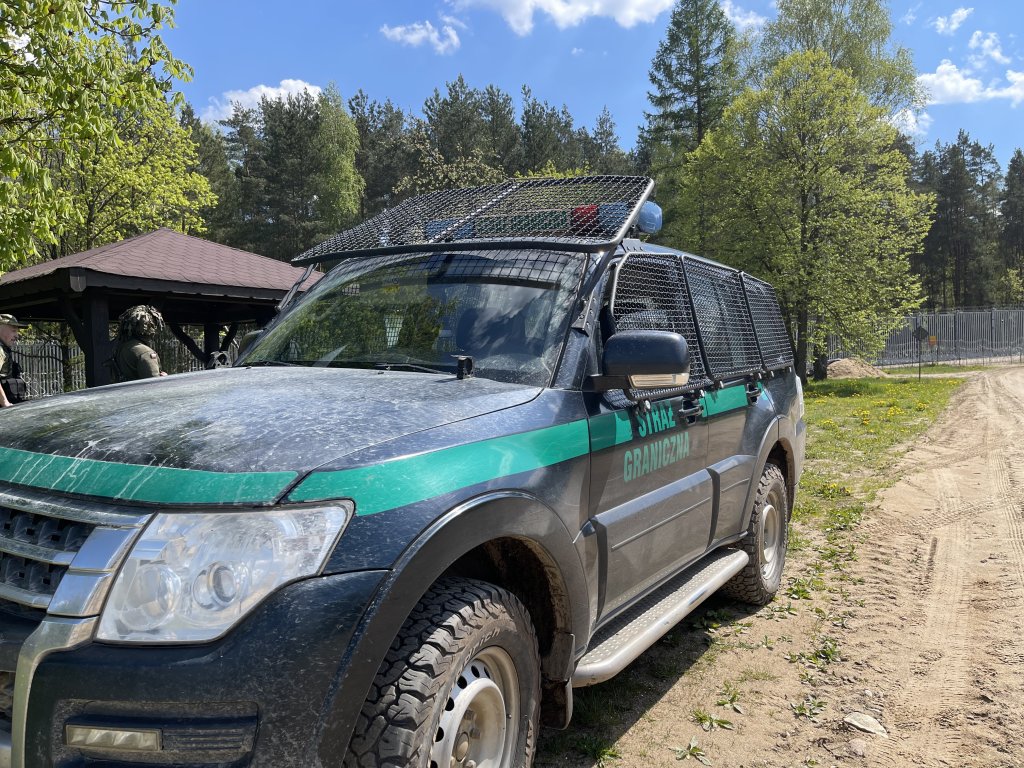The head of the far-right National Rally party Jordan Bardella has told the French media he wants to establish border controls in the Schengen area. How realistic – and how innovative – is his plan?
Invited onto the morning show of the France Inter radio station on June 5, the candidate of the National Rally (RN) in the European elections, Jordan Bardella, reiterated a proposal dear to the far-right: establishing identity checks on the borders of European countries within the Schengen area.
What Bardella hopes to do
Bardella suggested that the EU’s Schengen free travel space be open only to European travelers. "Having a residence permit in Spain or Italy should not give someone the right to travel in all EU countries," he said.
Bardella intends to "strengthen [border] controls where irregular immigration occurs," but this doesn’t mean having a customs officer on every corner of the street, he added.
"We know the crossing points," he said, citing the example of the Franco-Italian border, near the town of Menton, which he visited a few weeks ago.
"The Schengen code already foresees strengthening [border] controls when there are particular dangers for national security," said Bardella, adding that he considered the absence of border controls as a danger for national security.
Read more: European Parliament agrees on stricter EU migration rules
What is he talking about?
The Schengen Borders Code (SBC) gives Member States the capability to reintroduce temporary controls at internal borders "in the event of a serious threat to public policy or internal security," according to the European Commission's website.
The possibility of reintroducing control at internal borders can only be "in the event of a serious threat to public order or internal security [and] as a last resort, in exceptional situations."
Many states, including France, have reintroduced identity checks at their internal borders beginning in 2015, due to a heightened terrorism threat or during the COVID-19 pandemic.
The duration of the reintroduced border controls should be "limited" based on "the legal basis invoked by the Member State introducing such border control," states the Commission. The reform of the SBC, voted by the European Parliament on April 24, validates the reestablishment of these controls for a period of six months, renewable for three years – compared with two previously. The new version of the SBC is expected to be adopted in the upcoming months.
Read more: Anti-migrant mood as Bulgaria prepares to join Schengen area
The situation on the ground
In view of the rules already in force and the upcoming reform of the Schengen code, Jordan Bardella's proposal is therefore not new. Its application as he imagines it would only reinforce the rules already enforced on the ground.
This is the case on the Franco-Italian border, but also elsewhere in Europe. Since June 3, checks have been carried out at several border crossing points along the border between Austria and the Czech Republic. Police will also be deployed along the borders of the states of the Balkan route: between Slovenia and Croatia beginning on June 22, as well as at certain crossing points with Hungary, according to a document published by the European Commission.
Germany's border controls with Poland, Switzerland, and the Czech Republic, in place since October 2023, will also be renewed from June 16 onwards.
Read more: Germany attributes fall in irregular migration to stricter border controls
The Commission can allow or disallow a measure, but it cannot veto it.
The fact remains that this practice is regularly criticized by NGOs or the courts. The Court of Justice of the European Union ruled in September 2023 that even if a country has controls in place at its internal borders, it does not have the right to carry out systematic pushbacks, which often occur during police controls. The countries concerned must respect the so-called "return" European directive which stipulates that a non-European national can "benefit from a certain period of time to voluntarily leave the territory."
Increasingly restrictive European laws?
The reform of the Schengen Code goes beyond Jordan Bardella's proposal, by allowing Member States to close their borders in the event of "instrumentalization" or facilitation of the irregular entry of migrants into EU territory. EU countries will thus be able to close their borders (external or internal to the EU) for a period of two years, extendable for an additional year, or put in place temporary restrictions.
In recent years Belarus, Morocco and even Turkey have been accused of temporarily opening their borders to migrants attempting to reach European soil in an irregular manner. Thousands of migrants flocked to Poland from neighboring Belarus in 2021. Brussels claimed a "hybrid attack" led by the Belarusian dictator Alexander Lukashenko aimed at "destabilizing the EU's external border".

The Asylum and Migration Pact, adopted by the EU Council on May 14, foresees a "screening" procedure for migrants at EU borders for identification and to distinguish those who have a chance of obtaining asylum from those who are intended to be returned to their country of origin.
Those who statistically have the least chance of obtaining asylum will be held in centers while their file is examined for a maximum of six months, and potentially returned. Other asylum seekers will follow the standard procedure.
Human rights organizations, as well as MEPs from left-wing and green parties, have continued to criticize the pact, which allows for the possibility of detaining families with children and may lead to the "criminalization" of exiles. The far right, on the other hand, deplores the "weakness" of the reform.
